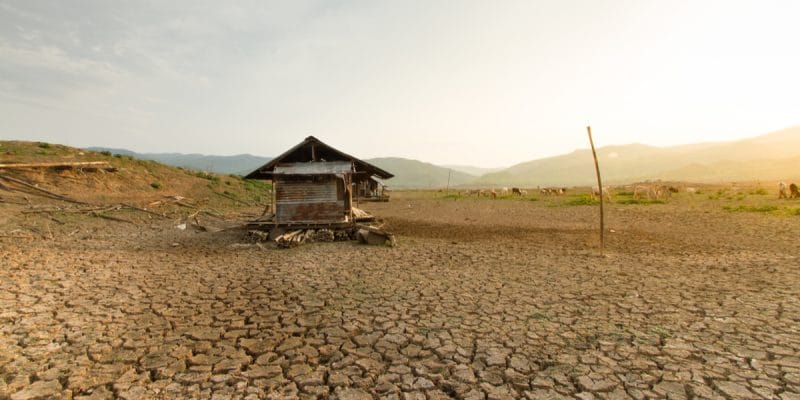The year 2020 will be the third to eighth hottest year on record in Africa. In a report released Tuesday, October 19th, the World Meteorological Organization (WMO) shows that changing rainfall patterns, rising temperatures and increased extreme weather events have exacerbated the continent's socio-economic and health crisis over the past year. If the trend continues, 100 million Africans will be threatened by global warming by 2030.
Africa is definitely the continent most vulnerable to the effects of climate change. A hundred million extremely poor people are threatened by the acceleration of global warming on the continent, where the rare glaciers are expected to disappear by the 2040s. The World Meteorological Organization (WMO) report on the state of Africa’s climate indicates that the rate of glacier retreat in the three African mountains that have them, Mount Kenya (in Kenya), Mount Rwenzori (in Uganda) and Mount Kilimanjaro (in Tanzania), is higher than the global average.
This is because by 2020, the report explains, Africa has warmed faster than the global average, land and ocean combined. Sea level rise rates along its tropical, South Atlantic and Indian Ocean coasts are also higher than the global average: about 3.6 mm/year and 4.1 mm/year, respectively. “By 2030, it is estimated that up to 118 million extremely poor people (i.e., living on less than $1.90 a day) will be exposed to drought, floods and extreme heat in Africa if adequate measures are not taken,” says Josefa Leonel Correia Sacko, the African Union (AU) Commission’s Commissioner for Rural Economy and Agriculture, in the report’s foreword.
Investing in hydro meteorological infrastructure
To address the increase in high-impact hazardous weather events, WMO calls on Africa to invest in hydro meteorological infrastructure and early warning systems. According to International Monetary Fund (IMF) household surveys in Ethiopia, Malawi, Mali, Niger and Tanzania, the risk of food insecurity could be reduced by 30 percent by improving access to early warning systems, food price information and weather information: simple text or voice messages to inform farmers when to plant, irrigate or fertilize. The report estimates that between $30 billion and $50 billion (€25 billion to €43 billion) should be allocated each year to activities that enable Africa to adapt to climate change. These activities should stimulate the economy and generate jobs.
Read also-AFRICA: The continent will have 105 million climate migrants by 2050
Released two weeks before the COP26 climate conference, the WMO report comes in the wake of recent climate warnings about Africa. The Economic Commission for Africa (ECA) reported in March 2021 that climate change will have a negative impact on the economies of African countries. The overall gross domestic product (GDP) will fall by 15% by 2030, due to climate disasters and expenses related to climate change adaptation efforts.
Boris Ngounou







